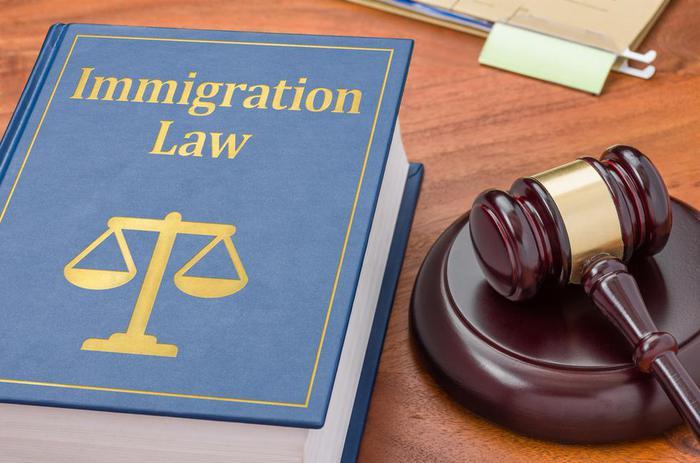
Nevertheless, deportation can sometimes be avoided through post-conviction relief such as a motion to withdraw a plea or a habeas corpus petition.
Below our Las Vegas criminal and immigration attorneys answer frequently-asked questions about crimes that can get immigrants and aliens deported in Nevada.
- 1. What are aggravated felonies?
- 2. Will I get deported for an aggravated felony?
- 3. Can I get a visa or green card?
- 4. Can I become a U.S. citizen?
- 5. Can I get asylum?
- 6. Can I return to the U.S.?
- 7. What happens if I am arrested for an aggravated felony in Nevada?
- 8. Options for non-citizens
Also see our articles on stopping removal proceedings and stopping deportation.

1. What are aggravated felonies?
Under U.S. immigration law, aggravated felonies are a category of crimes so serious that non-citizens who get convicted of them will be deported.1 Examples of aggravated felonies in Nevada include:
- murder
- violent crimes (with a sentence of one year or more)
- human trafficking
- kidnapping
- rape
- lewdness with a minor under 16
- child pornography
- theft crimes (with a sentence of one year or more)
- federal money laundering (more than $10,000)
- drug trafficking
- fraud (involving more than $10,000)
- perjury (with a sentence of one year or more)
- bribing a witness (with a sentence of one year or more)
Also learn about crimes involving moral turpitude (which include many aggravated felonies).
2. Will I get deported for an aggravated felony?
Non-citizens who get convicted of an aggravated felony will likely face deportation from the U.S. That is why aliens arrested for a crime should retain legal counsel as soon as possible to attempt to get the criminal charges dismissed or reduced to a non-deportable offense.

3. Can I get a visa or green card?
No. Foreigners applying for a visa or green card while outside the U.S. will be denied if they committed an aggravated felony. Foreigners applying for a visa or green card while inside the U.S. will not only be denied if they committed an aggravated felony, but also they will face removal from the U.S.2
4. Can I become a U.S. citizen?
Probably not. Immigrants who already have a visa or green card when they commit an aggravated felony are barred from naturalization and subject to deportation as well.
5. Can I get asylum?
No. Aliens in the U.S. are not eligible for asylum status if they committed an aggravated felony.3
6. Can I return to the U.S.?
No, though the Department of Homeland Security may issue a waiver in very rare circumstances. If a foreigner is deported from the U.S. after an aggravated felony conviction, he/she faces up to 20 years in prison if he/she reenters the U.S. illegally. 4

7. What happens if I am arrested for an aggravated felony in Nevada?
It depends on whether the arrestee is an undocumented alien or a visa- or green card holder:
Undocumented aliens who get arrested for any crime (not just aggravated felonies) can be removed from the U.S. just because they are undocumented. After their arrest, they may then get transferred to Las Vegas Immigration Jail (located in the Henderson Detention Center). Then the prosecutors at ICE (Immigration and Customs Enforcement) may start removal proceedings against them in Las Vegas Immigration Court.
(Note that ICE officials have prosecutorial discretion over which cases to litigate, so not every person who is deportable necessarily gets deported. However, the current Presidential administration is making it a priority to crack down on undocumented immigrants irrespective of whether they are otherwise law-abiding.)
Meanwhile, visa-holders and lawful permanent residents who get arrested go through the criminal court process just as U.S. citizens do. It is only if they get convicted that ICE can begin removal proceedings. But if their defense attorneys are able to get the charges dropped or changed to a non-deportable offense, the immigrant should not have to face removal from the U.S.
8. Options for non-citizens
Although non-citizens convicted of aggravated felonies are removable from the U.S., there may still be hope for lawful residence. Possible avenues of “post-conviction relief for immigrants” that would allow non-citizens to remain in the U.S. include the following:
- Habeas Corpus: Filing a writ of habeas corpus with the court challenges the legality of keeping a deportable alien in custody. Typically, writs point out a detrimental error made during the immigrant’s trial or plea.
- Appeal to Reduce Sentence: The defense attorney may be able to persuade the judge to reduce the immigrant’s jail sentence to under a year. So although the alien would still have a conviction, it would no longer be considered an aggravated felony. This, in turn, could remove the aliens’ case from immigration court completely.
- Motion to Vacate: If the case occurred in Nevada Federal Court, the defense attorney can ask the judge to overturn the plea through filing a “motion to vacate.” There are various grounds whereby a judge could agree to table a conviction for an aggravated felony. Common reasons are that the lawyer provided ineffective assistance of counsel, the sentence was not constitutional, and the defendant’s confession was coerced.5
Learn more about post-conviction relief for immigrants in Nevada.
Legal References:
- Immigration and Nationality Act (I.N.A.) § 101(a)(43)-(45). Note that the U.S. Supreme Court in Sessions v. Dimaya, No. 15–1498 (2018) invalidated the law that required mandatory deportation for “crimes of violence.”
- Id. § 212(a)(9)(A)(ii)].
- Id. § 208(b)
- 8 U.S.C. § 1326(b)(2).
- 28 U.S.C. 2255.

